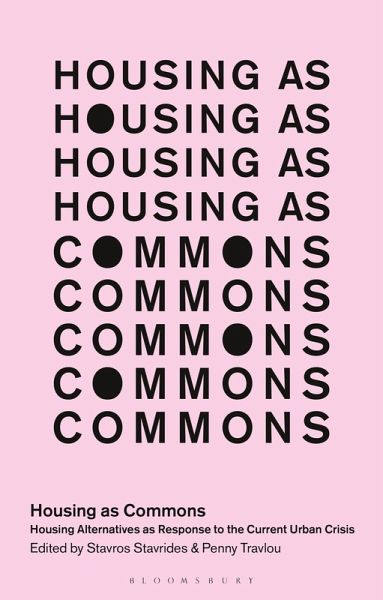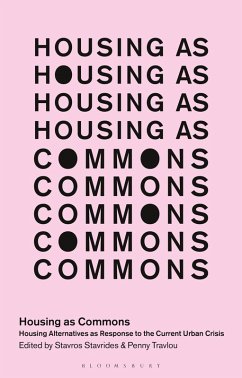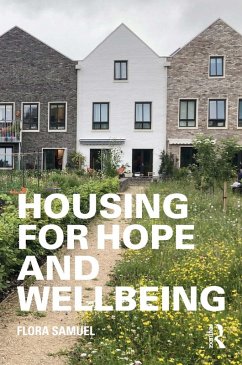
Housing as Commons (eBook, ePUB)
Housing Alternatives as Response to the Current Urban Crisis
Redaktion: Stavrides, Stavros; Travlou, Penny
Versandkostenfrei!
Sofort per Download lieferbar
19,95 €
inkl. MwSt.
Weitere Ausgaben:

PAYBACK Punkte
10 °P sammeln!
Experiences of the struggle for housing, ignited by the lack of social and affordable housing, have led to the establishing of shared and self-managed housing areas. In such a context, it becomes crucially important to re-think the need to define common urban worlds "from below". Here, Penny Travlou and Stavros Stavridis trace contemporary practices of urban commoning through which people re-define housing economies. Connecting to a rich literature on the importance of commons and of practices of commoning for the creation of emancipated societies, the authors discuss whether housing struggles...
Experiences of the struggle for housing, ignited by the lack of social and affordable housing, have led to the establishing of shared and self-managed housing areas. In such a context, it becomes crucially important to re-think the need to define common urban worlds "from below". Here, Penny Travlou and Stavros Stavridis trace contemporary practices of urban commoning through which people re-define housing economies. Connecting to a rich literature on the importance of commons and of practices of commoning for the creation of emancipated societies, the authors discuss whether housing struggles and co-habitation experiences may contribute in crucial ways to the development of a commoning culture. The authors explore a variety of urban contexts through global case studies from across the Global North and South, in search of concrete examples that illustrate the potentialities of urban commoning.













